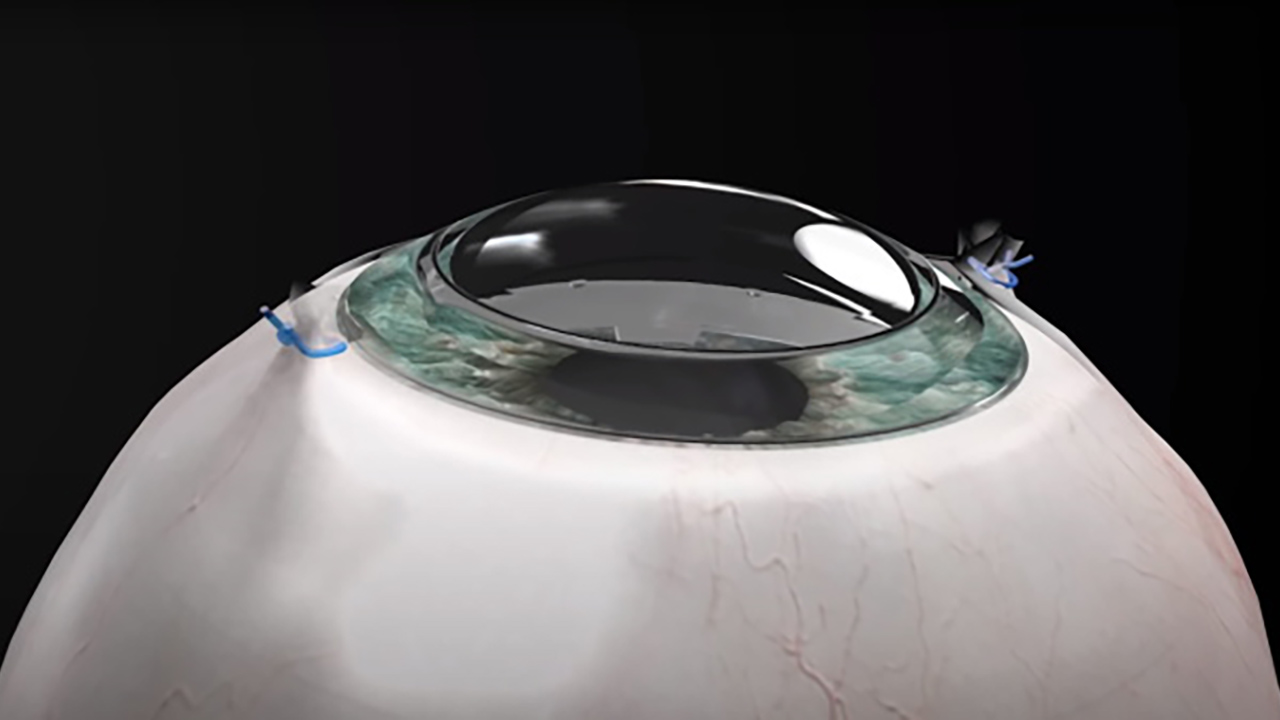Blind man regains his sight thanks to a synthetic cornea
Source: HW Upgrade added 20th Jan 2021
A blind man regained his sight thanks to a synthetic cornea developed by an Israeli startup. After removing the bandages, the 78 year old patient recognized the family members. The CorNeat KPro implant replaces deformed, scarred or dull corneas and integrates with the eye wall without requiring donor tissue.
by Manolo De Agostini published 20 January 2021 , at 14: 01 in the Science and Technology channel
A blind man of 78 years, Jamal Furani, has returned to see after receiving a new artificial cornea on January 3. The plant, called KPro , was developed by the Israeli company CorNeat Vison and represents a solution that can be integrated directly into the eye wall to replace scarred, deformed or opaque corneas, without the need for donor tissue . Immediately after the surgery, as reported by local media, the patient was able to recognize family members and read numbers. The man previously carried out four unsuccessful operations with fabric.
The intervention was carried out at Rabin Medical Center by Professor Irit Bahar, director of the ophthalmology department. “ The surgical procedure was simple and the result exceeded all our expectations. The moment we removing the bandages was exciting and meaningful. Moments like these are the fulfillment of our profession. We are proud to be the front line of this project which will undoubtedly impact on life million of people “.
According to Dr. Gilad Litvin, co-founder of CorNeat Vision and inventor of CorNeat KPro, “watching another human being regain his sight the next day it was electrifying and moving “.
“Our first study includes blind patients who are unsuitable candidates or who have failed one or more corneal transplants,” said Almog Aley-Raz, co-founder and CEO of CorNeat Vision. “Given the exceptional visual performance of our device, the healing time and absence of rejection, and the fact that it cannot transmit the disease, we plan to start a second study later this year with broader indications to approve the our artificial cornea as immediate treatment, replacing the use of donor tissue used in corneal transplants “.
The crown is the transparent layer that covers and protects the front of the eye. It can degenerate or heal for various reasons, including diseases such as pseudophakic bullous keratopathy, kerotocone or trauma. Artificial corneal implants are already a reality for patients with corneal degeneration, but because surgeries are complex, they are usually a last resort when intrastromal ring transplants or implants fail. In contrast, CorNeat’s solution is a relatively simple procedure that requires minimal stitches and cuts. Also, use a biomimetic material that “stimulates cell proliferation , leading to the progressive integration of tissues “, according to CorNeat.
A video shows exactly how it works all this, with the final result of a complete transplantation of the device in the patient’s eye into the ocular wall thanks to the action of fibroblasts and collagen. In this way, better visual acuity and “ exceptionally fast healing times ” are achieved, while also maintaining a certain “naturalness” of the eye.
Ten other patients have been approved for trial in Israel and the study is expected to be extended to Canada, France, the United States and the Netherlands.
